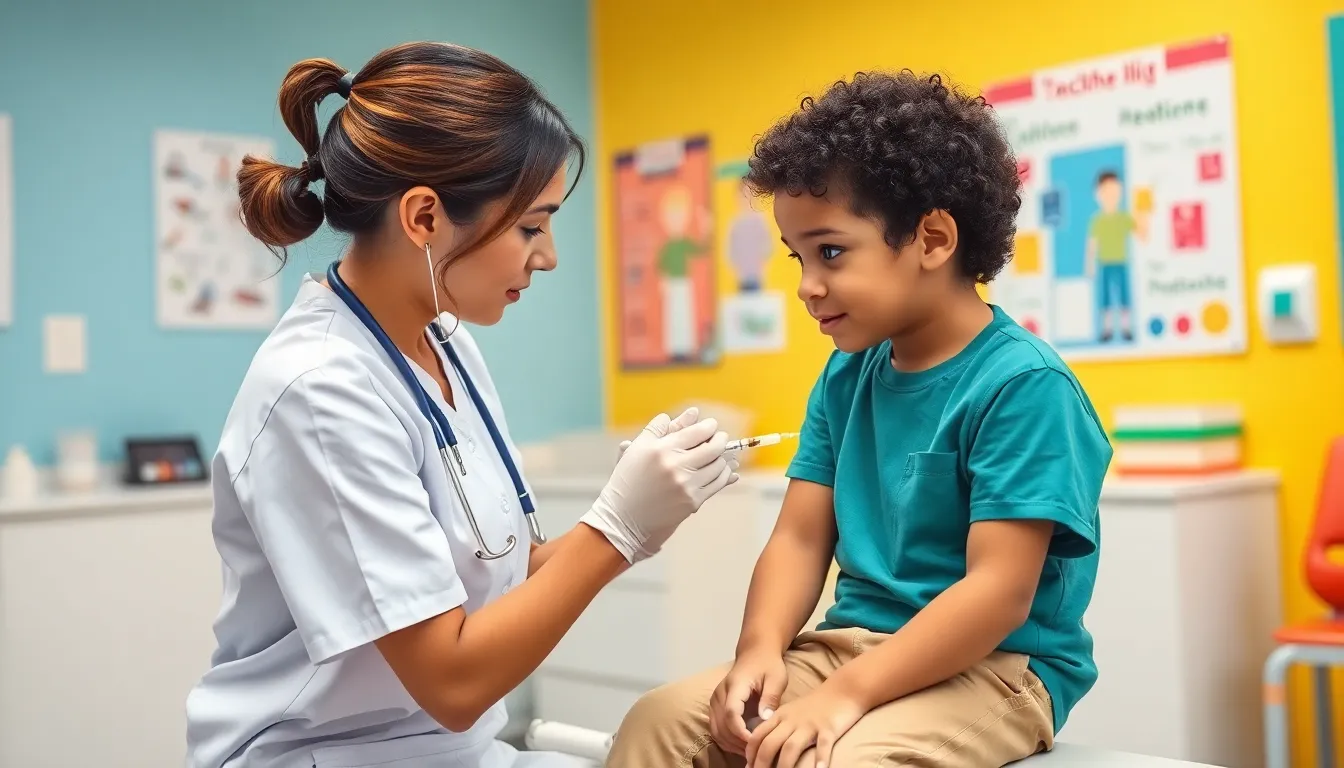In a world where information flies faster than a caffeinated squirrel, staying updated on reproductive health news is crucial. Whether it’s breakthroughs in fertility treatments or debates over reproductive rights, this topic affects everyone. It’s not just about the birds and the bees; it’s about empowering individuals with knowledge that can change lives.
Reproductive health isn’t just a buzzword; it’s a vital aspect of overall well-being. With new studies and policies emerging regularly, it’s easy to feel overwhelmed. But don’t worry, this article will break it down into digestible bites, sprinkled with a dash of humor. After all, who said reproductive health news can’t be enlightening and entertaining? Get ready to dive into the latest updates that could make a real difference in your life and the lives of others.
Table of Contents
ToggleOverview of Reproductive Health News
Reproductive health news encompasses a variety of topics that directly affect individuals and communities. Recent studies reveal important advancements in fertility treatments, such as in vitro fertilization (IVF) and egg freezing techniques. Policies around reproductive rights continue to evolve, prompting discussions on the accessibility of healthcare services.
Research findings frequently highlight the impact of reproductive health issues on mental and physical well-being. For instance, studies show that access to contraception decreases unintended pregnancy rates. Prevention efforts for sexually transmitted infections (STIs) remain vital, as data indicates rising incidence rates in certain demographics.
In addition, high-profile court cases and legislative actions can significantly reshape reproductive rights. Various stakeholders actively engage in advocacy to promote equitable access to reproductive healthcare. Regular updates on these developments provide invaluable information for those navigating their reproductive choices.
Organizations and health agencies often release reports outlining current trends in reproductive health, underscoring the value of comprehensive education. Partnerships between healthcare providers and community organizations facilitate awareness of available resources. Engaging content also keeps the public informed about potential innovations in reproductive technology.
As reproductive health issues affect a broad audience, staying updated is essential. Various platforms offer news articles, videos, and podcasts that translate complex information into digestible formats. These resources aim to empower individuals to make informed decisions about their reproductive health.
Recent Developments in Reproductive Health

Staying updated on reproductive health developments remains essential for informed decision-making. Recent advancements mark significant progress in both research and policy.
Breakthrough Research Studies
Research continues to unveil innovative fertility treatments, increasing success rates for in vitro fertilization. A 2023 study published by the Journal of Assisted Reproduction and Genetics highlights improved embryo selection techniques, resulting in higher live birth rates. Additionally, findings suggest that genetic screening may enhance outcomes for intended parents. Studies also explore the correlation between environmental factors and reproductive health, showing how exposure to certain chemicals can impact fertility negatively. These insights create a groundwork for future research and clinical practices.
Key Legislative Changes
Legislative landscapes shift rapidly, influencing access to reproductive healthcare. Recent bills in various states aim to protect and expand access to contraception. In early 2023, a landmark decision in California mandated insurance coverage for all FDA-approved contraceptives. Simultaneously, debates surrounding abortion rights remain heated, with several states proposing significant restrictions. Advocacy groups actively push for policies that ensure equitable access, emphasizing the importance of reproductive rights as fundamental healthcare. These changes motivate ongoing conversations about healthcare equity across the nation.
Impact of Reproductive Health News on Society

Reproductive health news shapes societal views and behaviors, creating a ripple effect across various demographics. This information affects everyone, from those seeking fertility treatments to those advocating for reproductive rights.
Public Awareness Campaigns
Public awareness campaigns play a crucial role in disseminating reproductive health information. These initiatives educate individuals about fertility treatments and the importance of reproductive rights. Campaigns utilize social media platforms, community events, and partnerships with healthcare organizations to amplify their messages. Statistics demonstrate that informed communities experience lower unintended pregnancy rates and higher utilization of contraceptive methods. Engaging content and approachable language help demystify complex reproductive health topics, encouraging individuals to seek the care they deserve. With ongoing efforts, these campaigns contribute to a more informed public, fostering discussions on reproductive health issues.
Influence on Healthcare Policies
Healthcare policies often reflect societal attitudes shaped by reproductive health news. Legislative changes frequently arise from heightened public awareness surrounding reproductive rights and access to care. Decisions in state legislatures, such as mandates for insurance coverage of contraceptives, illustrate this influence. Recent developments, including discussions around abortion rights and healthcare access, highlight the urgency of equitable reproductive healthcare. Advocacy groups actively participate in these dialogues, pushing for policies that enhance access and protections. Research demonstrates that comprehensive reproductive health outcomes result from supportive policy frameworks. An informed citizenry contributes to ongoing discussions that impact reproductive health legislation.
Challenges in the Reproductive Health Sector
Reproductive health faces numerous challenges that impact individuals’ access to care and the quality of services provided.
Access to Services
Access to reproductive health services remains a significant hurdle for many individuals. Geographic barriers limit options for those in rural areas, making it harder to find clinics that offer essential services. Financial constraints also pose challenges; costs for services like fertility treatments can be prohibitive. Additional complications arise for marginalized communities, who often encounter systemic inequities in healthcare. States with restrictive reproductive health policies further narrow access, leading to fewer available options. Recent legislative changes—like California’s mandate for insurance coverage of FDA-approved contraceptives—show a movement toward broader access, but many still face obstacles.
Misinformation and Myths
Misinformation around reproductive health circulates widely, creating confusion among the public. Myths about fertility treatments, contraceptive methods, and sexually transmitted infections often discourage individuals from seeking necessary care. Misconceptions about the safety and effectiveness of various services can lead to poor health outcomes. It’s crucial for healthcare providers and advocates to combat these false narratives through education and transparent communication. Campaigns aimed at dispelling myths can empower individuals to make informed choices. Trustworthy information sources strengthen communities by enhancing understanding and promoting reproductive rights.
Staying updated on reproductive health news is essential for making informed decisions. The evolving landscape of fertility treatments and reproductive rights affects everyone, underscoring the need for accessible information. Recent advancements and legislative changes signal a shift towards better healthcare access, yet challenges remain.
Empowering individuals through education helps combat misinformation and promotes reproductive rights. As advocacy groups continue to push for equitable policies, public awareness campaigns play a crucial role in shaping societal attitudes. By engaging with reliable sources and community resources, individuals can navigate their reproductive choices with confidence and clarity.




